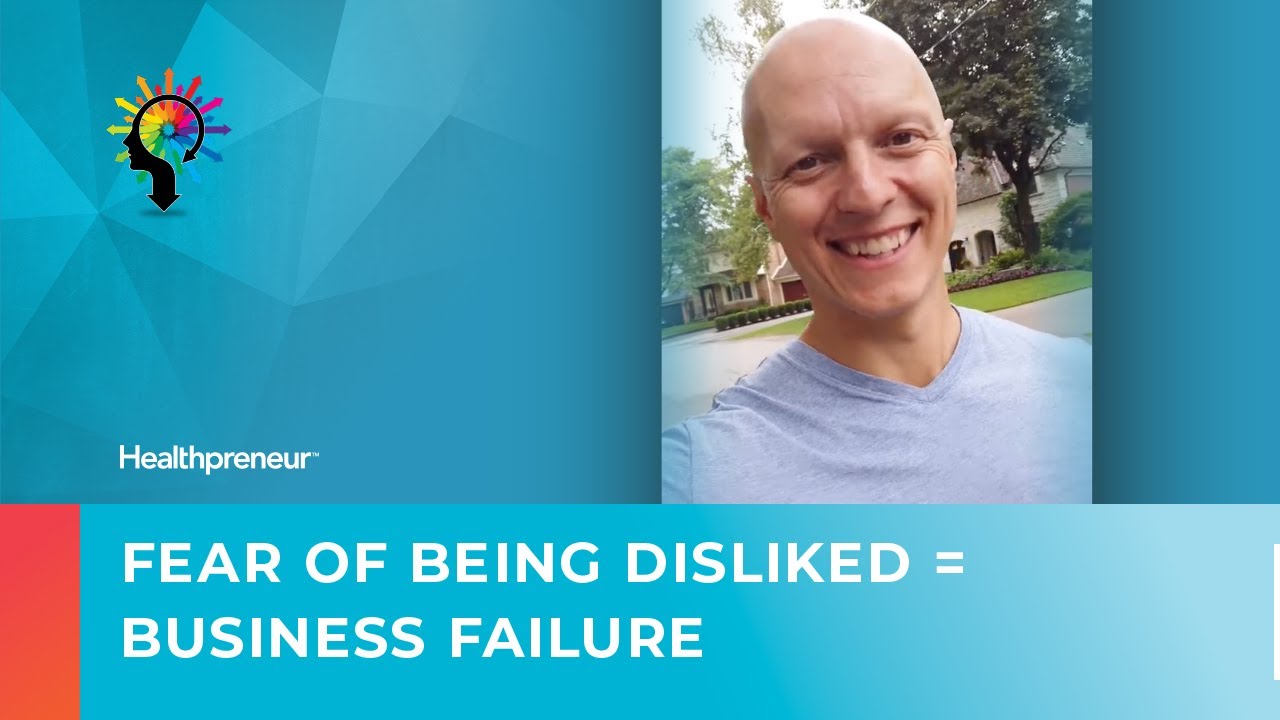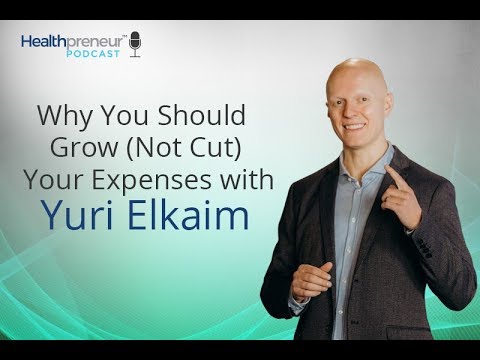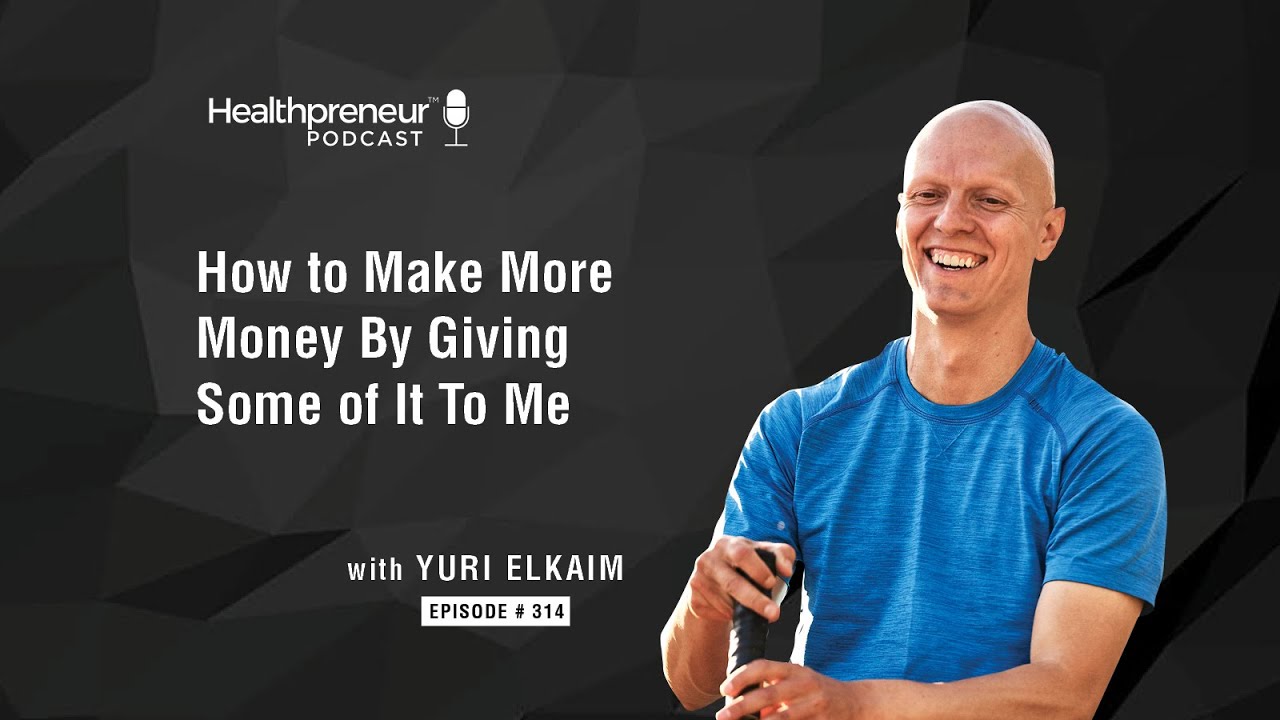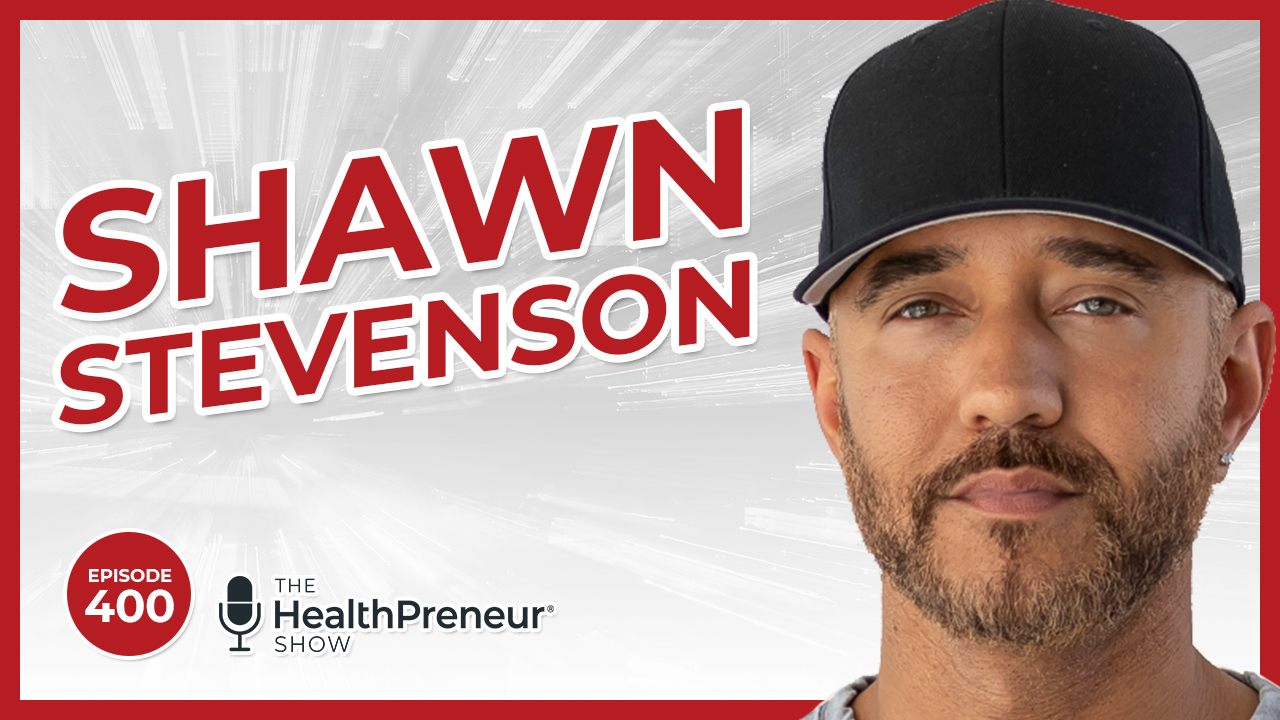Do You Need a Coach or a Babysitter?
What’s up, Healthpreneurs? Welcome to the Healthpreneur podcast. Today, I want you to give it to me straight: Do you need a coach or a babysitter? As you’re looking to grow and get through challenges, do you want someone who’ll coddle you – or do you want results?
I’m not the guy that’ll tell you that everything’s great when it’s not. I’m just not. If you want that, you should look for a babysitter. I empathize with my clients but also understand that they need a strong support.
As coaches, our clients depend on us to show up as our best and offer our best. They need honest advice, feedback, and solutions. Otherwise, they’ll never push themselves forward and past their challenges. Tune in to hear when to hire a babysitter, when to hire a therapist – and when to invest in a coach.
In This Episode I discuss:
1:00 – 2:30 – Why I’m not a babysitter
2:30 – 4:00 – The job of a coach and veering away from dependency
4:00 – 6:30 – The caterpillar story, kids, and how it relates
6:30 – 9:00 – Why a coach isn’t a therapist, either
9:00 – 12:00 – When to choose a babysitter or therapist and when to choose a coach
Transcription
Do you need a coach or do you need a babysitter? Let’s just be honest, right? What do you need in your business? As you are looking to build your business, as you’re looking to coach more clients, grow your business, get through obstacles and challenges. Are you looking for someone who’s going to coddle you and make sure everything’s okay and snuggle you at night? Are you looking for a coach who’s going to help you get results?
Why I’m not a babysitter
I want to be very real about this because listen, I’m not the kind of guy who’s going to say that everything’s okay and you’re doing great if you’re not. I’m going to give you what you need to hear and sometimes this might come across as insensitive and if it does, I apologize for that, but I believe that my goal is not to necessarily make you feel all warm and fuzzy. My goal as a coach, and I believe your job as a coach as well is yes, a 100% to empathize with your client’s situation. You should always do that.
I’m not saying that I don’t do that, but your clients need you to lead them. They need you to be the stronger version of themselves. They need you to help them pull themselves out of their own little rut, and it’s not going to be helpful if you’re telling them it’s okay, that you’re babysitting for this through whatever process they’re going through. People and your clients are going to go through downward spiral, they’re going to go into negative portals that are not going to support them. You have to bring them out of that. Right? Part of your job as a coach is to elevate people, to empower people. It’s not to disempower them and making them dependent upon you. This is a fine line you have to be very cautious of with coaching, is that coaching can very quickly become dependency where your clients no longer can think for themselves. They’re coming to you for every single answer.
The job of a coach and veering away from dependency
Yes, as a health or fitness expert, you have expertise and wisdom that you can share with them and say, “Hey, listen. Do this. This is going to work,” and that’s fine. You need to balance that with asking questions and challenging them and helping them figure things out on their own because if they can’t do that on their own, they have become more dependent on you and less empowered for themselves. I think that’s a really bad trap to fall into and that’s something that I’ve had to personally overcome in terms of the way I coach. At least years ago, the way I used to coach was just blurt out a lot of advice and I still do to some degree, but I do challenge our clients to think for themselves and really come up with answers that they think is going to make sense for them. That’s why I think you can never really change the way somebody thinks, but you can give them a tool to help them change the way they think about their thinking.
The caterpillar story, kids, and how it relates
A lot of what we do with our clients in our mastermind or our health business accelerator workshop is frameworks and templates and tools. Questions that can help them figure things out. I think that’s important because very much like with my kids, if my kids are struggling with something, I want them to struggle. I want them to struggle because if they don’t struggle, they can’t learn from that. There’s a story of, and I’m probably going to butcher this story, but there’s a story of this caterpillar. It’s in a little cocoon and it’s hanging from a branch, right? It’s doing its thing and struggling. This man walks by the one day and he sees this, whatever the thing is called, the cocoon, it’s wiggling around. You can see that there’s something inside and he just wants to help out. What he does is he takes a pair of scissors and he cuts a hole in the cocoon and lo and behold, the butterfly falls out but the butterfly falls out prematurely.
As a result, it dies, because it hasn’t had enough time to go through the struggle, it hasn’t had enough time to build its wings to be able to fly. It’s the same thing with you and it’s the same thing with your clients. You have to allow some degree of struggle for your clients for them to think, for them to have to go through what they have to go through, with you as their sherpa, as their guide, but they need to figure things out. You can’t always have the solutions for them. You can’t do the work for them, but you have to expect them to show up and do the work. With my kids, if they’re struggling putting a zipper up right on their coats, I’ll let them struggle for a little bit. I’ll let them struggle for a little bit, you know, and then we’ll see what happens. Right? They will figure it out. Here’s the cool thing is if you have kids, you probably would recognize this too, is that when they figured out how to do it, do they feel more proud or less proud?
They feel a lot more proud about themselves. Right? They feel good. They’re like, man, I accomplish them. That’s awesome. When my kids were a lot younger, trying to get them to put on their own seatbelts was an interesting challenge, right? They’re like, oh my God, I can’t do it. I can’t do it. I can’t do it, and I’m like, yeah, you’re right. You can’t do with that attitude. I would try to train them as early as possible instead of saying, I can’t do it. Let’s ask a better question. How can I do this? How can I put on my seatbelt? Maybe the answer is ask mommy or daddy for help or ask my brother for help, right? Become more resourceful. I’m not saying there’s a right or wrong way to coach. Everyone has difference, capabilities and expertise, and ways of doing what they do. What I believe is results are most important. That’s really why you’re hiring a coach is to get results.
Why a coach isn’t a therapist, either
If you’re looking for a therapist who’s going to sit you on a chair and talk about your story all day, that’s fine. Don’t expect that from a good coach. A good coach doesn’t care about the stories. This is especially important in group situations. One of the reasons people move away from one-on-one is because they had drained from that type of coaching, that psychotherapy sessions. No one wants to listen to your stories. Nobody cares about your stories. Okay? When a group call scenario, one of the things that a lot of people think of is like, there’s no way a group call is going to be beneficial because everyone’s been talking and wasting time. That’s true if you don’t know how to lead a call. Number one, everyone’s lines should be muted until you unmute one at a time. Then being very clear with your ground rules. There’s a difference between being useful and wasteful. Don’t talk about your story for 20 minutes. Ask the question and let’s get to the point.
Now, some people might take that as insensitive or a little bit abrasive but I don’t think it is. I think it’s just respectful of everyone else’s time. Nobody else on the phone call wants to hear your story. I have one of my closest childhood friends who I don’t really talk with that much anymore. Great guy. We spent a lot of time when we were younger together, played soccer together, but he lacks social awareness. He goes into stories that everyone’s like, you know that guy that just talks about that same story over and over? It’s like, oh my God, you’re telling this 30 minute story again? Don’t be that guy. Don’t be that person because it really ruins the experience for everyone else. Now, if you have clients like that, it is your job as the coach to really nip that in the bud before it even happens. You have to set clear ground rules for your clients, for your calls. You have to be the leader. You have to take the reins and say, this is the way this is going to go.
When to choose a babysitter or therapist and when to choose a coach
If you have an issue that needs resolving, let’s get right to the issue. In our masterminds, when we’re doing hot seats, I tell people, listen, you’ve got 20 minutes. Listen, the clock is the boss. When the timer goes off, you’re done. Don’t spend 10, 20 minute, 10 to 15 minutes talking about the backstory. Really quickly, 30 seconds, give us some context, ask the one question you need help with and open it up to the floor. If you spend 10 minutes talking about your story and then going off on tangents about things that have no relevance to what we’re about to discuss, that’s your issue. The problem is that it’s also going to detract from what everyone else can share with you. All of this coming back to you, do you need a coach or do you need a babysitter? If you need to have emotional support or whatever else from a babysitter who is going to coddle you and tell you everything’s going to be great. Hey, go find that person. I’m not that person.
You might need a therapist as opposed to a coach. If you need a coach who is going to kick you in the butt in a loving manner, who is going to be there to support you and push you, then that’s what we do. I really hope that you provide that for your clients too. There’s a combination of love and a little bit of tough love, right? We really, really care about our clients’ results but we can’t want our clients’ results more than they want it for themselves. Just like you can’t want your clients’ results more than they want it for themselves. You can only do as much as you can, but that client got to show up and do the work. If they don’t do the work, that’s on them, it’s not on you. Okay? At the end of the day, you have to become the client you want to attract. If you are the type of client who needs a lot of handholding and a lot of emotional support and a lot of all that kind of stuff, chances are you are going to attract that type of client into your business.
There’s nothing wrong with that if you want to deal with that, but personally, I want to deal with action takers. People who are like, I got the plan, I’m going to do the work. I’m going to come in for support when I need it. That’s the type of person I am. Those are the type of people that I want to attract. If that’s you, that’s awesome. We should have a talk. If it’s not you, that’s totally fine as well. There’s probably other coaches out there who can help you as well. At the end of the day, that’s the deal. I think you need a coach. You don’t need a therapist. You need a coach, you don’t need a babysitter because if you want results, a good coach can get you there. A babysitter is going to keep you where you’re at. They’re going to keep you safe and they’re going to keep you feeling comfortable, but you don’t grow when you’re comfortable. All right, hope this makes sense. Hope this sinks in and I’ll see you soon.
Hey, thanks so much for joining us on this episode of the Healthpreneur Podcast. If you’ve enjoyed this episode, here’s what I’d like you to do right now. If you haven’t done so already, please subscribe to the Healthpreneur Podcast on iTunes, and while you’re there, leave us a rating or review. It helps us get in front of more people and change more lives. If you’re ready to start or scale your health or fitness coaching business and want to start getting in front of more people, working with them at a higher level without trading time for money, then I invite you to check out our free seven figure health business blueprint training totally free right now. You can do so at healthpreneurgroup.com/training.
For now, thank you so much for joining us. Continue to be great, do great, and I look forward to seeing you in the next episode.
If you enjoyed this episode, head on over to iTunes and subscribe to Healthpreneur™ Podcast if you haven’t done so already.
While you’re there, leave a rating and review. It really helps us out to reach more people because that is what we’re here to do.
What You Missed
On our last episode we did Client Deep Dive with Susan Gleaton, who is a registered dietician with an integrative and functional nutrition background.
Her main concern was her mindset around charging premium pricing. She feels like she’s always wanted to help those in need – whether they can pay what she’s worth or not – and finds herself losing confidence when charging more.
Tune in to hear how Susan (and you!) can get paid what you’re worth and deliver the best results.





